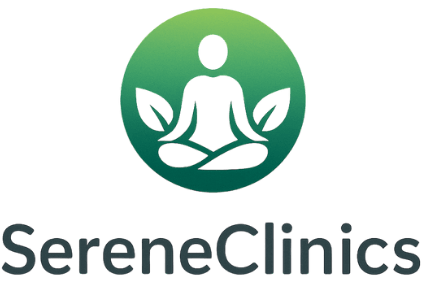Licensed Naturopathic Doctors: Definition, Education, and Regulations
Are you curious about the role of Licensed Naturopathic Doctors and how they differ from traditional medical practitioners?
This article explains the basic ideas of naturopathic medicine The demanding schooling needed to get a license, and the rules that control their work.
Learn about their unique approach to health care, the treatments they offer, and how to find a qualified naturopathic doctor that suits your needs.
Dive in to discover a holistic approach to wellness!
Key Takeaways:
Contents
- 1 What is a Licensed Naturopathic Doctor?
- 2 Naturopathic Medicine Statistics
- 3 What Education is Required to Become a Licensed Naturopathic Doctor?
- 4 What are the Regulations for Licensed Naturopathic Doctors?
- 5 What Services Do Licensed Naturopathic Doctors Provide?
- 6 How Can Someone Find a Licensed Naturopathic Doctor?
- 7 Frequently Asked Questions
- 7.1 What is a licensed naturopathic doctor?
- 7.2 What education is required to become a licensed naturopathic doctor?
- 7.3 What regulations are in place for licensed naturopathic doctors?
- 7.4 What type of treatments do licensed naturopathic doctors offer?
- 7.5 Can licensed naturopathic doctors prescribe medications?
- 7.6 What are the benefits of seeing a licensed naturopathic doctor?
What is a Licensed Naturopathic Doctor?

A licensed naturopathic doctor (ND) is a healthcare provider who focuses on naturopathic medicine, which uses natural treatments to prevent, diagnose, and treat illnesses.
Naturopathic doctors are trained to safely care for patients using methods such as herbal medicine, dietary supplements, and lifestyle advice, based on thorough medical knowledge, clinical training, and patient-focused care. To better understand how naturopathic doctors differ from conventional physicians, the American Medical Association provides an insightful comparison in their article titled, “What’s the difference between physicians and naturopaths?”
For those interested in exploring the practical application of naturopathic medicine, Seattle offers [a hidden gem](https://sereneclinics.com/loc/usa/holistic-health-centers-seattle/) of holistic health centers that specialize in these natural treatments.
What is the Difference Between a Naturopathic Doctor and a Medical Doctor?
The main difference between a naturopathic doctor (ND) and a medical doctor (MD) is their education, treatment methods, and views on patient care. MDs generally concentrate on standard medical practices and pharmaceuticals, while NDs focus on whole-body approaches and natural treatments. According to the American Medical Association, understanding these distinctions is essential for patients seeking individualized care strategies.
In naturopathic medicine, the focus is on addressing the main cause of health problems instead of just relieving symptoms. This often involves a mix of health plans that use herbal medicine, homeopathy, and changes in daily habits, all intended to help the body heal naturally.
Unlike regular doctors, who might focus on medications and surgeries, naturopathic doctors look at diet and mental health as important parts of overall well-being. This combined method improves overall health and helps people see how different alternative treatments can work well with traditional methods to offer complete care.
Naturopathic Medicine Statistics
Naturopathic Medicine Statistics
Naturopathic Medicine Usage and Growth: Usage and Profession Growth
Naturopathic Medicine Usage and Growth: Practitioner and Practice Statistics
The Naturopathic Medicine Statistics show considerable growth and changes in the use and practice of naturopathic medicine, showing its increasing acceptance and integration into healthcare systems in the U.S. and Canada.
Usage and Profession Growth metrics indicate a notable increase in U.S. adults adopting naturopathy, up from 0.2% in 2002 to 1.3% in 2022. This increase indicates more people are looking for different types of medical treatments that focus on overall health and prevention. Furthermore, the 81% growth in ND applicant pool from 2002 to 2009, coupled with the 122% increase in first-year ND population, highlights expanding educational opportunities and interest in naturopathic careers.
- Practitioner and Practice Statistics: In 2016, there were 5,000 licensed practitioners in the U.S. and 2,000 in Canada, indicating substantial professional presence and legitimacy. Of these practitioners, 69% of ND graduates are serving underserved populations, showcasing naturopathy’s role in addressing healthcare disparities. Additionally, 66% of ND practices use eco-friendly methods, supporting environmental sustainability and overall health principles. Furthermore, 45% of NDs offer sliding fee scales making naturopathic care affordable for more people.
These statistics show the increasing impact and use of naturopathic medicine. As more people look for natural healthcare choices, the need for certified professionals rises, supporting career and learning development in this area. The focus on treating underserved populations and adopting sustainable practices highlights naturopathy’s commitment to equitable and environmentally conscious healthcare.
Overall, the Naturopathic Medicine Statistics Show a positive direction for naturopathy, with increasing use, professional development, and dedication to making it accessible and sustainable. This development suggests continued advancement and acceptance of naturopathic medicine in mainstream healthcare, offering diverse health solutions to meet varying patient needs.
What is the Philosophy of Naturopathic Medicine?
Naturopathic medicine is based on the idea that the body can heal itself. Healthcare should focus on the patient and help the body’s natural processes using whole-person methods and practices backed by research.
Naturopathic practitioners focus on preventing health issues by finding and treating the root causes instead of just dealing with symptoms.
For example, a naturopathic doctor may recommend dietary changes, lifestyle modifications, and herbal remedies to support a patient’s digestion rather than simply prescribing medication to alleviate digestive discomfort.
Naturopathic doctors help patients actively manage their health by including topics like nutrition, acupuncture, and plant-based medicine.
This complete view helps people learn more about health and supports them in developing habits that improve their well-being.
What Education is Required to Become a Licensed Naturopathic Doctor?

To become a licensed naturopathic doctor, a person must finish a thorough educational program that includes earning a degree from an approved naturopathic medical school.
This usually takes four years of detailed courses in medical sciences, hands-on training, and studies in therapeutic topics, followed by a residency program to gain real-world experience.
What is the Curriculum for Naturopathic Medical Schools?
Accredited naturopathic medical schools offer a complete education that includes a wide range of medical topics and therapies. Students learn about anatomy, physiology, clinical skills, and naturopathy principles, getting ready to become healthcare providers.
This educational plan provides future healthcare workers with important information about fundamental medical sciences. It covers subjects such as herbal medicine and nutrition, promoting a complete approach to patient care.
By implementing both traditional remedies and modern scientific research, the curriculum encourages students to understand the complex interplay between natural therapies and contemporary health practices.
Clinical training is part of the program, giving students practical experience and helping them improve how they interact with patients. This improves their ability to provide complete healthcare services.
What is the Licensing Process for Naturopathic Doctors?
To become licensed, naturopathic doctors usually need to pass the Naturopathic Physicians Licensing Examinations (NPLEX) to show their skill, and then meet certain state or provincial rules to get their license to practice.
After completing these important exams, aspiring practitioners need to meet other requirements like background checks and provisional license rules, which differ greatly depending on the area.
Once licensed, they are required to engage in continuing education to stay updated on the latest therapeutic practices, regulations, and advancements in naturopathic medicine.
This ongoing responsibility helps practitioners maintain their licenses and ensures that patients receive care from knowledgeable and compliant professionals.
Focusing on regulation builds public confidence and highlights the need for safe and knowledgeable patient care in naturopathy.
What are the Regulations for Licensed Naturopathic Doctors?
Rules for licensed naturopathic doctors differ by area but usually specify what NDs can do. These rules help NDs provide safe care while following professional standards and ethical guidelines.
What is the Scope of Practice for Naturopathic Doctors?
The scope of practice for naturopathic doctors includes a range of healthcare services, from diagnosing and treating medical conditions to prescribing certain therapies such as herbal medicine, dietary supplements, and providing lifestyle counseling, all while ensuring ethical and legal compliance.
These professionals often deal with common patient issues like long-term pain, digestive problems, and stress relief. They use a complete method that looks at both physical and emotional health.
By encouraging open communication and involving patients in their treatment plans, they help people manage their own health. Paying attention to ethical behavior is important because it creates trust with patients and keeps them safe in healthcare environments.
Keeping honesty and ethical standards high helps patients trust their care, which leads to better health results.
What are the Standards of Care for Naturopathic Doctors?
The rules for naturopathic doctors are made to guarantee that patients receive treatments that are safe, effective, and backed by evidence. These guidelines help doctors make good medical decisions and build trust in the naturopathic healthcare system.
These standards are important for defining the ethical and professional duties of practitioners, and they improve the quality of care that patients can expect.
By following these guidelines, naturopathic doctors use current research to develop treatments that are supported by science and customized for each person’s needs.
These professionals are dedicated to continuously improving their skills and staying informed about the newest developments in medical research and techniques.
This dedication helps patients find better health options, strengthening trust and belief in naturopathic medicine.
What are the Continuing Education Requirements for Naturopathic Doctors?

Continuing education requirements for naturopathic doctors are critical for keeping their licenses. These requirements help practitioners stay informed about medical knowledge, new treatments, and updated healthcare regulations.
These educational pursuits take various forms, including workshops, seminars, and specialized training programs, all of which provide essential platforms for professional development.
By participating in these programs, NDs can learn more about the latest treatments and methods, leading to a more effective and combined way of caring for patients.
Ongoing education improves their clinical skills and helps them handle new challenges in healthcare, which leads to better patient outcomes and satisfaction.
Continually learning is important to keep naturopathic medicine useful and up-to-date in changing situations.
What Services Do Licensed Naturopathic Doctors Provide?
Licensed naturopathic doctors offer many services to support patient health and well-being. They use natural methods and combined medical practices to address different health issues, focusing on preventing diseases and improving health.
What Types of Treatments Do Naturopathic Doctors Use?
Naturopathic doctors use different therapies, such as herbal medicine, dietary supplements, acupuncture, and lifestyle advice, all customized to the specific needs and choices of each patient.
This customized method makes sure that each treatment plan deals with the specific symptoms and the root causes of health problems.
For example, many NDs use herbal treatments like echinacea to help the immune system or ashwagandha to ease stress.
Dietary supplements such as omega-3 fatty acids and probiotics are often recommended to improve general health and digestive well-being.
By combining traditional knowledge with modern research, naturopathic treatments help patients take charge of their path to better health, encouraging them to be involved in their own healing.
How Do Naturopathic Doctors Approach Diagnosis and Treatment?
Naturopathic doctors diagnose and treat patients by looking at their health history, lifestyle, and symptoms. They use their medical knowledge to create individualized treatment plans that target the source of the illness.
At the first meeting, these professionals usually have detailed conversations with patients to understand their physical and emotional health.
They may perform detailed physical exams and order various lab tests to assess hormone levels, nutritional deficiencies, and other health metrics that could influence the patient’s condition.
These diagnostic methods help naturopathic doctors create varied treatment plans. Their method often uses natural treatments such as herbal medicine and changes to diet, while also focusing on lifestyle changes, managing stress, and preventing illness, to achieve a balanced state between the body, mind, and spirit.
What Conditions Do Naturopathic Doctors Treat?
Naturopathic doctors can handle various health problems, such as long-term illnesses, digestive issues, hormonal problems, and mental health challenges, using personalized treatments based on whole-person healthcare principles.
These practitioners look for the main reasons behind illnesses instead of only addressing symptoms, providing a thorough approach to patient care.
For instance, when addressing digestive disorders, NDs may recommend dietary changes, probiotics, and herbal remedies to restore gut health. Similarly, for hormonal imbalances, they often employ a combination of lifestyle adjustments, nutritional counseling, and botanical therapies to promote balance.
Mental health issues are approached with equal care, utilizing therapies such as cognitive-behavioral techniques and stress management strategies.
Their dedication to complete patient care is clear through their use of additional therapies, creating treatment plans that focus on the overall health of the individual, rather than treating health as separate issues.
How Can Someone Find a Licensed Naturopathic Doctor?
To find a licensed naturopathic doctor, look for qualified healthcare providers using resources like the American Association of Naturopathic Physicians.
They offer directories and rules to help you find NDs near you.
What are the Qualifications to Look for in a Naturopathic Doctor?

When choosing a naturopathic doctor, make sure they have a valid license, graduated from a recognized naturopathic medical school, and have a strong background in clinical training and practices backed by evidence.
People thinking about seeing a doctor should look at how much clinical experience the doctor has, as this can improve the care they receive. Years of hands-on experience in various healthcare settings can indicate a doctor’s ability to handle diverse patient needs and conditions effectively.
Extra certifications in areas like nutrition, herbal medicine, or homeopathy can show their knowledge and dedication to ongoing learning.
Looking for a practitioner who participates in professional groups or continues their education can indicate a trustworthy naturopathic doctor.
What Questions Should Someone Ask a Potential Naturopathic Doctor?
When talking to a possible naturopathic doctor, patients should inquire about their treatment methods, education, and background to confirm that the doctor matches their medical requirements and beliefs.
Inquire about the methodologies the doctor employs and their rationale behind those choices. Patients might want to learn about the professional’s experience by asking how many years they have been working and what specific health issues they have effectively addressed before.
It’s important to talk about how much patients will participate in their treatment. How a doctor communicates can greatly affect recovery, so find out how often the doctor follows up and how they update you on how the treatment is going.
Engaging in these discussions can help establish a solid foundation for a collaborative and effective healthcare relationship.
Frequently Asked Questions
What is a licensed naturopathic doctor?
A licensed naturopathic doctor (ND) is a primary care provider who focuses on natural and non-invasive treatment methods. They are trained to treat the whole person and address the root cause of health concerns, rather than simply managing symptoms.
What education is required to become a licensed naturopathic doctor?
To become a licensed ND, one must complete a 4-year post-graduate program from an accredited naturopathic medical school. This includes a thorough curriculum that teaches basic sciences, clinical sciences, and natural therapies, along with clinical practice supervised by licensed NDs.
What regulations are in place for licensed naturopathic doctors?
Regulations for licensed NDs vary by state, but in general, they are licensed and regulated as primary care providers and have the ability to diagnose, treat, and order diagnostic tests for their patients. They are also required to adhere to strict standards of practice and ethical guidelines.
What type of treatments do licensed naturopathic doctors offer?
Licensed NDs offer a variety of treatments, including herbal medicine, clinical nutrition, physical medicine, acupuncture, homeopathy, and counseling. These treatments are focused on addressing the underlying cause of illness and promoting self-healing.
Can licensed naturopathic doctors prescribe medications?
In some states, licensed NDs are able to prescribe certain medications, such as natural supplements and hormones. However, they cannot prescribe medication and usually collaborate with doctors to give complete care to their patients.
What are the benefits of seeing a licensed naturopathic doctor?
One of the main benefits of seeing a licensed ND is their focus on preventative and natural approaches to health. They can help patients manage chronic conditions, improve overall wellness, and reduce the need for pharmaceutical drugs. They have extra time to dedicate to patients, which enables detailed and individualized care.

Sheetal Sharda has a background in CS. She got an interest in Holistic living back in 2018, and has since started exploring more into Naturapathy, Holistic Living, Yoga, and more. She got inspired to start SereneClinics to help people find reliable centers across the world.






